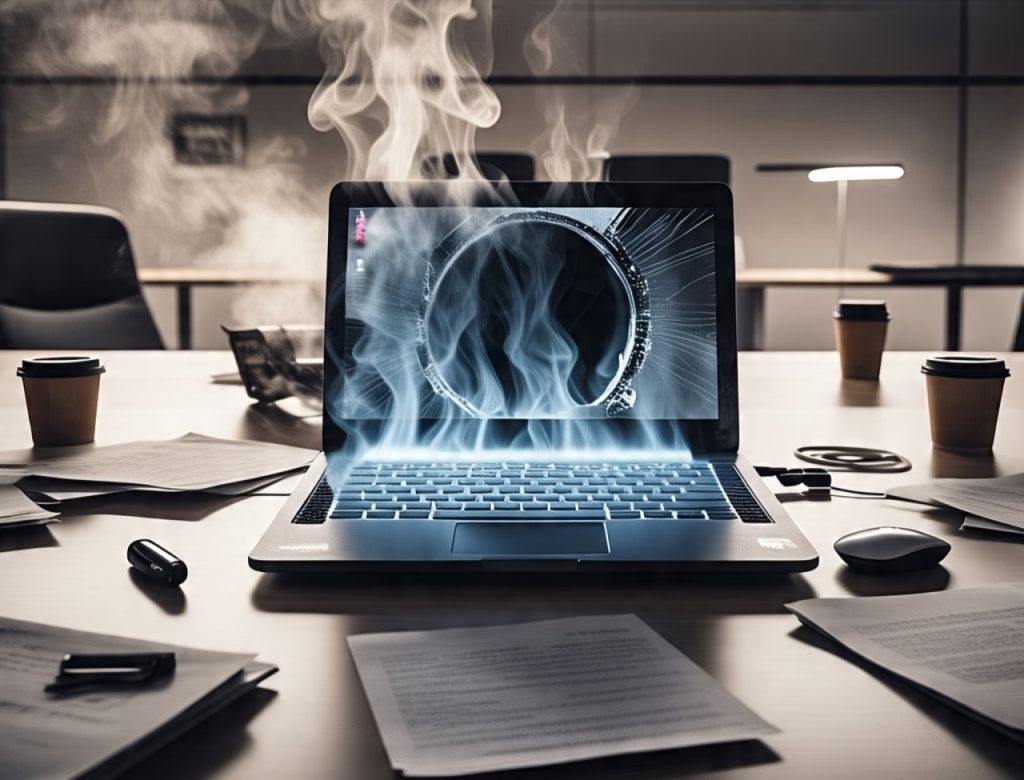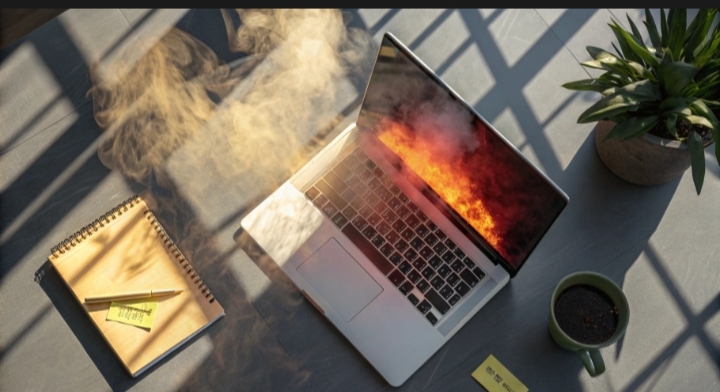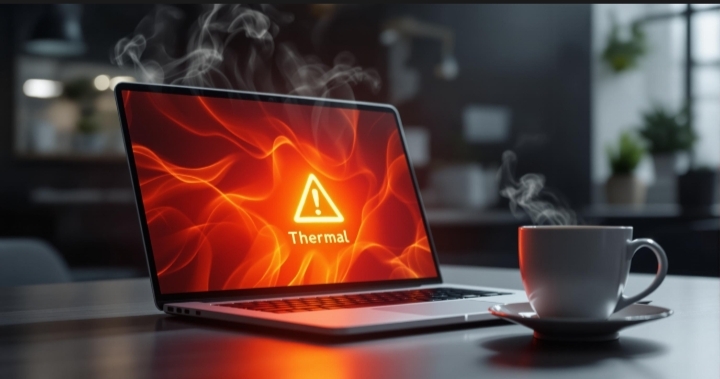Laptop overheating is often caused by dust buildup, poor ventilation, or overuse of high-performance applications. To fix it, first clean the air vents with compressed air to remove dust. Use your laptop on a hard surface, not on beds or cushions, to ensure proper airflow. You can also apply new thermal paste if the internal components are aging. Installing cooling software to monitor temperatures and using a cooling pad can also help. For persistent issues, consider replacing the fan or getting it checked by a technician.
In This Article
Why Is Your Laptop Overheating? (Common Culprits)
Laptop Overheating when they can’t “breathe.” Here’s why:
- Dust Bunnies Attack: Dust clogs vents and fans, blocking airflow.
- Too Many Tabs Open: Running 50 Chrome tabs + Netflix? Your CPU is sweating.
- Old Thermal Paste: The heat-transfer glue between your CPU and cooler dries up.
- Weak Cooling System: Cheap laptops often skimp on cooling tech.
- Using It on Your Bed: Soft surfaces smother the vents.

10 Proven Steps to Fix a Laptop Overheating
1. Clean the Vents and Fans (The #1 Fix!)
What to do:
- Shut down your laptop.
- Use a can of compressed air to blast dust from vents and fans.
- Open the back panel (if possible) for a deeper clean.
Pro Tip: Do this every 3-6 months. Dust is a silent killer!
2. Stop Multitasking Like a Maniac
Too many apps = CPU overload = HEAT.
Fix it fast:
- Close unused programs (check Task Manager on Windows or Activity Monitor on Mac).
- Limit browser tabs. Use extensions like OneTab to save memory.
3. Elevate Your Laptop for Better Airflow
Genius hack: Place your laptop on a flat, hard surface.
- Use a cooling pad (with fans) for heavy gaming/editing.
- No cooling pad? Prop it up with books to create space under the vents.
4. Replace the Thermal Paste (Advanced Fix)
Thermal paste helps transfer heat from the CPU to the cooler. If it’s dry, your laptop will overheat.
How to:
- Buy thermal paste (like Arctic MX-4).
- Watch a YouTube tutorial for your laptop model.
- Apply a pea-sized drop on the CPU.
5. Adjust Power Settings to Reduce Heat
For Windows:
- Go to Control Panel > Power Options > Choose “Balanced” mode.
- Avoid “High Performance” mode unless necessary.
For Mac:
- Go to System Settings > Battery > Enable “Low Power Mode.”
6. Stop Overheating While Gaming
Gaming pushes your laptop to its limits. Try these tweaks:
- Lower graphics settings (yes, even if it hurts).
- Use a laptop cooling pad with 3+ fans.
- Take breaks every hour to let it cool.
7. Update Your Software (Seriously, Do It!)
Old software can cause bugs that overwork your CPU.
- Update Windows/macOS.
- Update drivers (especially graphics and chipset).
8. Check for Malware (The Sneaky Heat Culprit)
Viruses or crypto-mining malware can hijack your CPU.
- Run a full scan with antivirus software.
- Delete suspicious programs.
9. Avoid Direct Sunlight (And Hot Cars)
Never use your laptop in hot places. Heat from the sun or a parked car can fry it in minutes.
10. Reset or Replace the Battery (Last Resort)
Swollen or old batteries trap heat.
- If your laptop feels bloated, replace the battery ASAP.
When to Call a Professional
If your laptop still overheats after trying all fixes:
- The fan might be broken.
- There’s internal hardware damage.
- Visit a repair shop before your laptop dies!

Prevent Overheating Forever: Daily Habits
- Keep vents clean and unobstructed.
- Shut down your laptop weekly (don’t just close the lid).
- Avoid using it on blankets, pillows, or your lap.
FAQs About Laptop Overheating
1. Is it bad if my laptop gets hot?
Yes! Overheating can damage the motherboard, CPU, or battery. Fix it ASAP.
2. Can I use ice packs to cool my laptop?
NO! Condensation can destroy internal parts. Use a cooling pad instead.
3. How hot is “too hot” for a laptop?
Above 95°C (203°F) is dangerous. Install apps like HWMonitor to check temps.
4. Why does my laptop overheat when charging?
Charging generates extra heat. Unplug it once fully charged.
5. Can overheating delete my files?
Not directly, but sudden shutdowns from overheating can corrupt data.
Final Thoughts
Laptop overheating is a silent killer, but you’ve now got the ultimate survival guide. Follow these steps to save your device, boost its lifespan, and keep it running smoothly. Got questions? Drop them in the comments—let’s keep those laptops chill!


This Post Has 3 Comments
Pingback: 10 Upcoming Samsung Phones - Digitallguide
Overheating can seriously harm your laptop’s performance and longevity. It’s crucial to keep your software updated and avoid using your device in hot environments. Using a cooling pad and monitoring temperatures can prevent damage. Always unplug your laptop once it’s fully charged to reduce heat buildup. What’s the best way to detect if malware is causing the overheating issue? WordAiApi
Pingback: How to take a screenshot on a Dell laptop